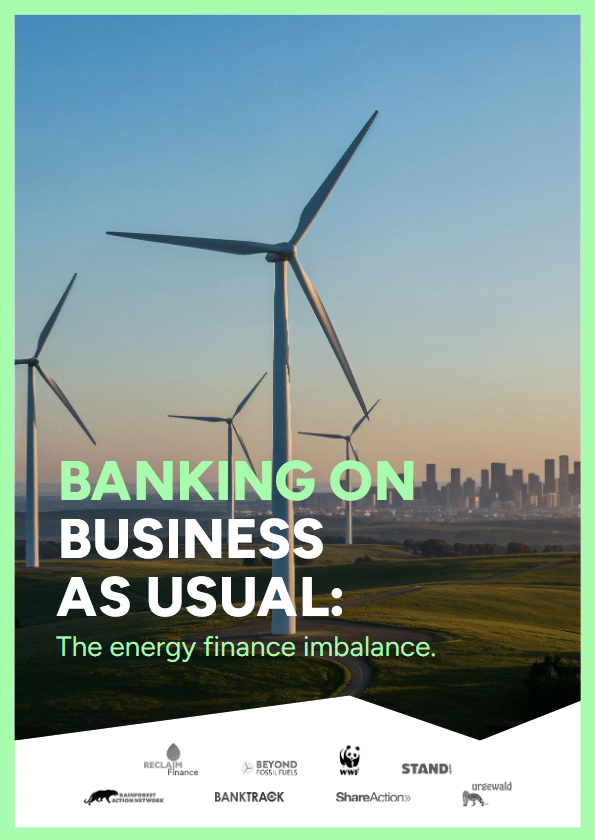
Banking on business as usual: The energy finance imbalance
Climate change is accelerating, fueled by an energy system still dominated by fossil fuels. The current impacts on human societies and ecosystems serve as a daily reminder of the urgent need to act now to prevent irreversible climate tipping points and even more severe consequences. A radical transformation in how we produce and use energy is non-ne-gotiable.
The Banking on business as usual report measures the financing allocated by the 65 biggest global banks for both fossil fuels and sustainable power supply. It uses that data to calculate the energy supply financing ratio (ESFR), a critical metric to assess their contribution to the energy transition. Additionally, the report also reviews the few existing ESFR and their methodologies, and analyzes the banks’ policies and commitments toward supporting the energy transition.
Key findings:
- Between 2021 and 2024, the 65 biggest banks globally allocated to fossil fuels more than twice the amount of money allocated to sustainable power supply.
- This ratio remained almost flat during the analyzed period.
- 93% of sustainble power supply financing is concentrated in OECD & China.
- Only eight banks set a financing target dedicated to the power sector and only four banks are publishing their Energy Supply Financing Ratio.
Banks should urgently align their support to the energy system with the needs of a net-zero trajectory. Consequently, they should adopt climate strategies that address the transformation of the power supply sector.
